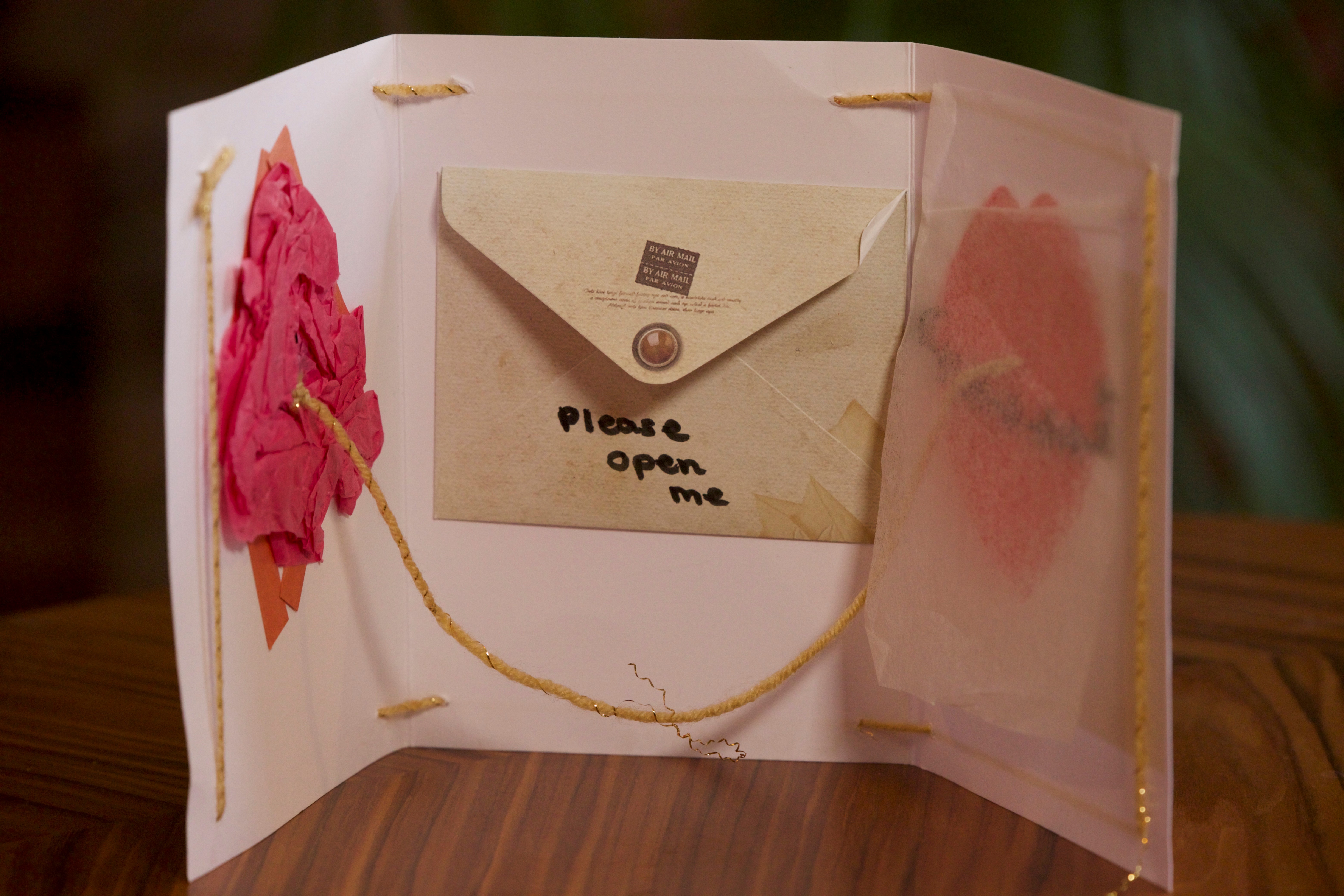
Dr Stella Bolaki (School of Classics, English and History) and Dr Samantha Davey (Essex Law School) have worked together to conduct interdisciplinary research on how creative methods could help mothers whose children have been adopted without their consent to process difficult feelings such as grief and loss. Whether affected by historic practices of adoption or contemporary care and adoption proceedings, mothers’ voices are largely missing from the field of adoption studies, and media coverage is often unsympathetic and even stigmatising.
To remedy this, Stella and Samantha have organised artist’s book workshops where mothers are shown how to craft a personal, visual and tactile book out of a variety of artistic materials, and use it as a tool of self-reflection, healing and empowerment. Similar workshops have been offered to social workers, barristers and counsellors to enrich the practice and build the capacity of different professionals working in this area. In Autumn 2024, the outputs from these workshops were exhibited at an art gallery based on the high street in Colchester as part of the exhibition ‘Expressions of Trauma’. The artists’ books featured are a powerful reflection of each of mothers’ experiences. Each page contains raw emotions and displays feelings of love, grief, sadness, anger, frustration and, ultimately, resilience. Through art, these mothers have found a way to express pain and connect with others facing similar struggles. This powerful element of storytelling through art is what made the ‘Expressions of Trauma’ exhibition not just an art display but a shared space for dialogue between mothers, professionals and the wider public – as well as a space for reflection, healing and social justice.
The team is developing a series of training videos and creative resources to support mothers emotionally and is collaborating with Movement for an Adoption Apology and Pause to raise broader public awareness of the challenges these mothers face. To find out more about this research, watch this video or read this open access article.

This project is funded by Kent’s Impact Acceleration Account (IAA) scheme. IAAs are institutional awards that have been introduced by Research Councils within UK Research and Innovation (UKRI) to deliver funding mechanisms for knowledge exchange and impact activities.




